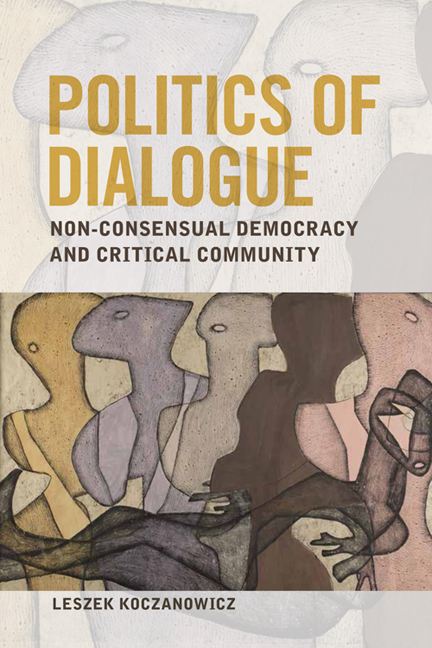2 - Dialogue, Carnival, Democracy: Mikhail Bakhtin and Political Theory
Published online by Cambridge University Press: 05 August 2016
Summary
A WORD is dead
When it is said,
Some say.
I say it just
Begins to live
That day.
– Emily DickinsonPolitics and Mikhail Bakhtin's Notion of Language
In the previous chapter, I discussed the pragmatist concept of democracy as grounded in the idea of the community of communication. Mead and Dewey painstakingly demonstrated the connections between the self, communication (mainly, although not exclusively, through language) and democratic politics. Mead, especially, developed a concept of language, which posits language as a kind of action. Yet, he did not explore the inner structure of linguistic communication, which omission has been frequently cited as a serious flaw of his theory. For instance, Habermas made this failing into a focal point of his critique of Mead's theory. Habermas proposes that Mead's concept of language should be supplemented with Wittgenstein's insights:
Wittgenstein emphasized the internal connection that holds between the competence to follow rules and the ability to respond with a ‘yes’ or ‘no’ to the question whether a symbol has been used correctly, that is, according to rules. The two competencies are equally constitutive for rule consciousness; they are equiprimordial in regard to logical genesis. If we explicate Mead's thesis in the way I have suggested, it can be understood as a genetic explanation of Wittgenstein's concept of rules – in the first instance, of rules, governing the use of symbols that determine meanings conventionally and thereby secure the sameness of meaning.
What is of greatest importance for Habermas is ‘the sameness of meaning’, which is supposed to secure the ultimate understanding between the parties involved in dialogue. As there is not the space to discuss Habermas's concept of language in detail at this point, I would like only to note that his notion of language-in-action is, in fact, a disguised form of language-as-system. This scheme enables Habermas to reinterpret pragmatism as an undeveloped version of his idea of transcendental pragmatics. The gist of his interpretation lies in showing that what the pragmatists described as language communication, through subsequent operations of taking the role of the other, can be represented as universal principles, and that these principles can be deductively derived from the rules of transcendental pragmatics.
- Type
- Chapter
- Information
- Politics of DialogueNon-consensual Democracy and Critical Community, pp. 42 - 90Publisher: Edinburgh University PressPrint publication year: 2014



